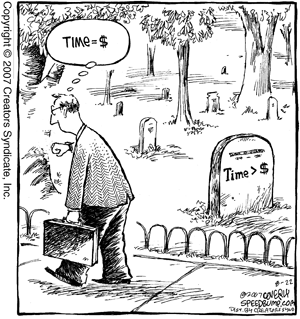David1961
Thinks s/he gets paid by the post
- Joined
- Jul 26, 2007
- Messages
- 1,085
I’m 51 and am about to RE. For all my working years, I’ve been focusing on saving money, LBYM and watching my portfolio grow, etc in preparation for ER. And I think I’ve done very well. Seems like when you RE, there is a shift from growing your portfolio to living off of it. Basically, instead of seeing my portfolio grow by over 10% a year on average (including my savings being added), all I need it to do is keep up with inflation. It’s kind of like “I made it” and can take my foot off the pedal now. I know that is not the case, as I may live another 50 years and need to continue to invest prudently. I’m not planning on making many changes to my investments, except keep a little more in liquid cash (so I can sleep a little better at night). In some ways, I feel like I’m the football coach of a team that is up by 21 points with less than five minutes to play – just don’t screw up and you will win. Does this make any sense or am I just over-analyzing this? One thing I have learned with investing (as well as in life) is the biggest risk you can take is not taking any risks. Thanks for your insights.


 Whee indeed!
Whee indeed! 
 , but I already worry in my mind once in a while. I don't focus on this topic yet, because who knows maybe we'll end up working until we're in our 60's, but I do have a nagging thought here and there about transitioning from employer's paycheck to our own. We like traveling in Europe but we also have to go there since we're both Europeans and our families reside there, but spending $10K+ (for 4 of us and no hotels or B&B's mostly) while we work is one thing, but I'll probably need a shrink's help in 20-30 years.
, but I already worry in my mind once in a while. I don't focus on this topic yet, because who knows maybe we'll end up working until we're in our 60's, but I do have a nagging thought here and there about transitioning from employer's paycheck to our own. We like traveling in Europe but we also have to go there since we're both Europeans and our families reside there, but spending $10K+ (for 4 of us and no hotels or B&B's mostly) while we work is one thing, but I'll probably need a shrink's help in 20-30 years.